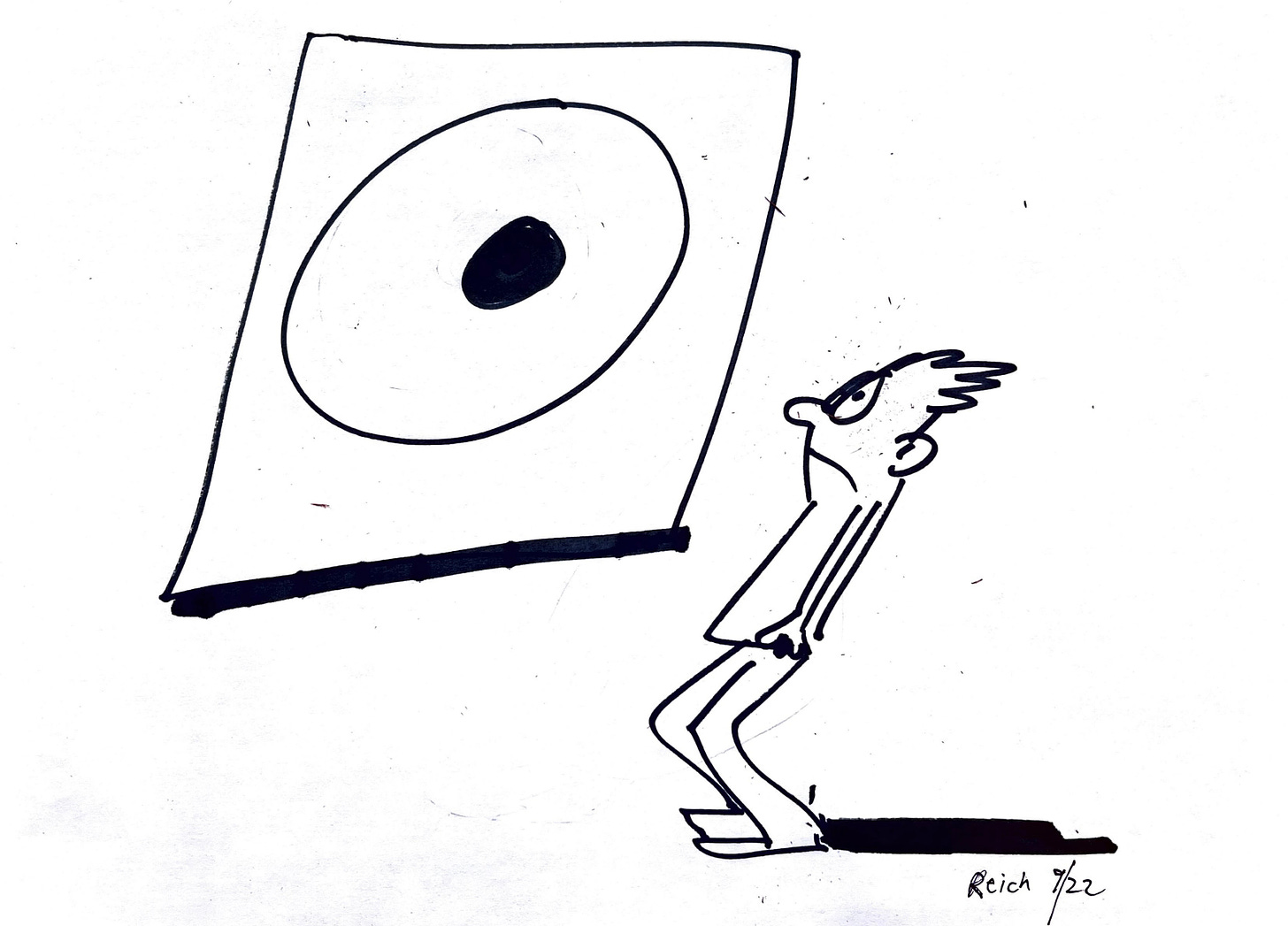Friends,
Today’s New York Times has a story about Russia’s powerful internet regulator, Roskmnadzor, whose collection of personal data about average Russians has, in the Times’s words, “catapulted Russia, along with authoritarian countries like China and Iran, to the forefront of nations that aggressively use technology as a tool of repression.”
A few weeks ago, the Times ran a story about China’s collection of personal data on its citizens through phone-tracking devices, voice prints, one of the largest DNA databases in the world, facial recognition technology, and more than half of the world’s nearly one billion surveillance cameras.
This is important and useful reporting. But pardon me if I ask an impertinent question: Why aren’t we hearing more about corporate surveillance of employees in the United States? Or about corporate surveillance of Americans in general? Or how this corporate surveillance is being used by the US and state governments?
Even if Russia’s and China’s surveillance states are far more dangerously intrusive than America’s surveillance capitalism, shouldn’t we know more about how the same or very similar technologies are being utilized here?
Since I was secretary of labor, I’ve seen American companies load up on monitoring software — to watch what workers are doing every minute of the day. Workers are now subject to trackers, scores, and continuous surveillance of their hands, eyes, faces, and bodies. And increasingly, they’re paid only for the minutes (or seconds) when the systems detect they’re actively working.
Kroger cashiers, UPS drivers, and millions of others are monitored by the minute. Amazon measures seconds. J.P. Morgan — the largest bank in the United States — tracks how its workers spend time, from making phone calls to composing emails. At UnitedHealth Group, low keyboard activity can affect compensation and sap bonuses. In Amazon warehouses, some workers don’t get enough time to go to the bathrooms. ESW Capital, a Texas-based business software company, tracks workers in 10-minute intervals during which — at some moment that workers can’t anticipate — cameras take snapshots of their faces and screens.
“Digital productivity monitoring” — isn’t that an innocent-sounding phrase? — is spreading even to white-collar jobs requiring graduate degrees. Radiologists get scoreboards showing “inactivity” time and comparing productivity to their colleagues’. Doctors and nurses describe increasing electronic surveillance over workdays. Even lawyers are being closely monitored.
Firms selling all this monitoring technology gush with testimonials from supervisors describing newfound powers of “near X-ray vision” into what workers are doing other than working: watching porn, playing video games, using bots to mimic typing, two-timing. Dystopia now!
Russia’s and China’s growing surveillance systems seem more dangerous and intrusive than America’s increasing surveillance of our workers because the information Russia and China collect can stifle dissent.
But are the surveillance systems really that far apart? Big corporations that gather loads of data on exactly what their workers do all day (and sometimes into the night) — including in their purview the growing ranks of remote or gig workers — can stifle workers’ efforts to form labor unions or show any disgruntlement at all.
Russia’s and China’s surveillance of their inhabitants and America’s surveillance of our workers are starting to overlap because the technologies are starting to overlap.
A technology company in eastern China even designs “smart” cushions for office chairs that record when workers are absent from their desks. How long before we see smart cushions in American offices?
And more and more, we’re being surveilled without knowing it. Delta Air Lines boasts that its Atlanta airport’s Terminal F is the “first biometric terminal” in the United States where passengers can use facial recognition technology “from curb to gate.”
The Financial Times reports that a Microsoft facial recognition training database of 10 million images drawn from the internet without anyone’s knowledge is utilized by agencies that include the United States and Chinese military.
A new joint report from the Associated Press and Electronic Frontier Foundation highlights a major surveillance tool, known as “Fog Reveal,” now being used by dozens of local law enforcement agencies across the United States to collect personal data without a warrant. The tool makes use of advertising data — including location, timestamp, and a unique advertising ID tied to individual devices — to construct a searchable database that enables law enforcement to either track an individual device or see which devices passed through a certain area.
Where does this end?
A few years back, Mark Zuckerberg predicted that “Facebook will know every book, film, and song you ever consumed, and its predictive models will tell you what bar to go to when you arrive at a strange city, where the bartender will have your favorite drink waiting.”
Well, that day has just about arrived.
Google’s Eric Schmidt has said, “We know where you are. We know where you’ve been. We more or less know what you’re thinking about.”
With Google using my search data and its high-tech trucks surveilling my neighborhood, I’m sure Schmidt is right.
As Shoshana Zuboff noted in her brilliant The Age of Surveillance Capitalism, we once celebrated these new digital services as free but we are learning that the platforms are hyper-velocity global bloodstreams into which almost anyone may introduce a dangerous virus without a vaccine, or from which big corporations and government can draw anything they’d like to know about us.
I’m not so sure we should be so disdainful of Russia’s and China’s surveillance systems, given what’s happening in the United States.
Isn’t it time we got serious about protecting our freedom from being watched, monitored, examined, and exposed? Otherwise, the surveillance state and surveillance capitalism merge — and we’ll have no place to hide.













Share this post